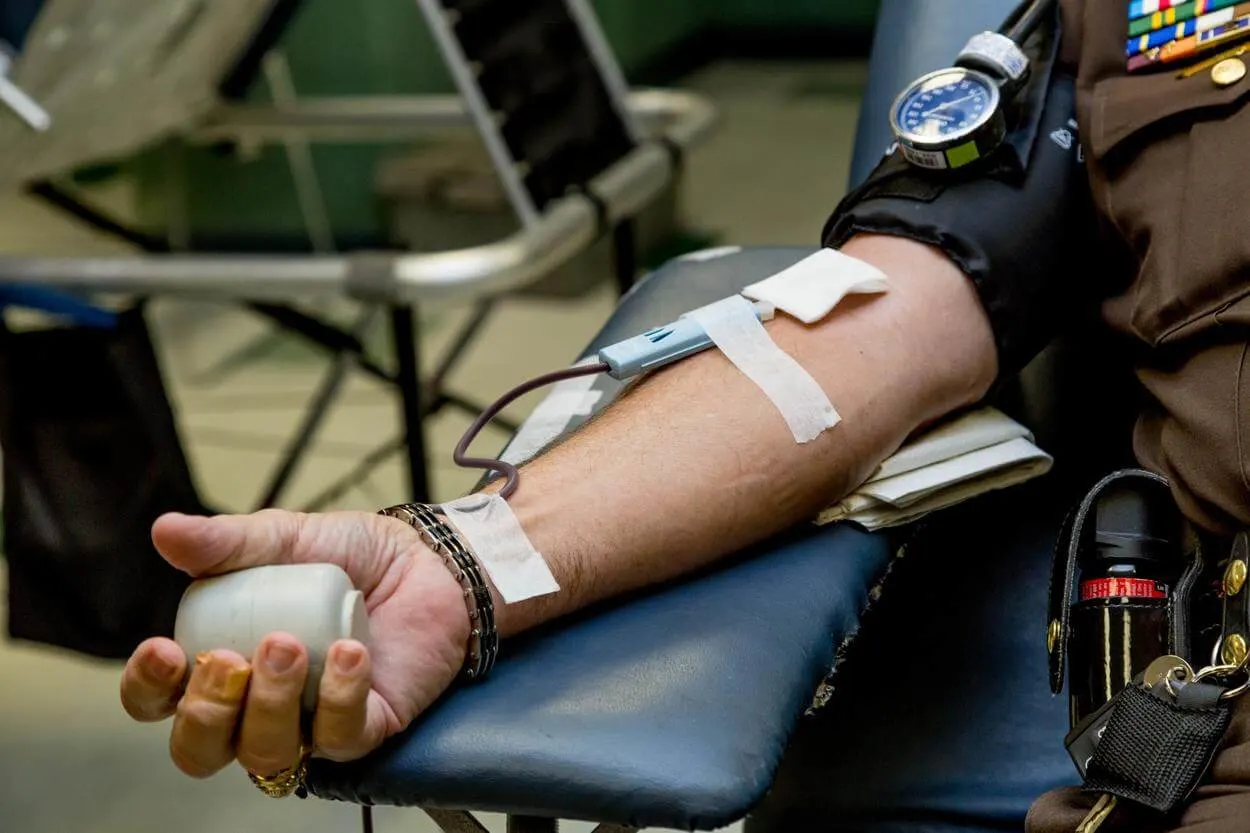You’ll be able to identify their differences because you must use them for different purposes. A “Donor” is someone who has allowed their organs to be donated and transplanted to those in need after their death. On the other hand, a “donator” is someone who gives to charity or a cause.
People believe that both words mean the same thing is acceptable. This is because you use these words for someone giving something valuable for a good cause. But isn’t it much nicer if you know how to use them correctly?
So let’s get right to it!
Is There Such a Word as Donor?
Of course, there is! Otherwise, we won’t even use it in medical terms.
As mentioned, a “donor” is considered a person who provides blood, an organ, or semen for transfusion. It could also pertain to people who will give their organs for transplant. This means that “Donor” is related more to medical terminology.
Who is a Donor?
Basically, a more technical definition states that a donor is a source of biological material, including blood and organs. It’s often used to describe someone who has undergone a medical procedure for the sake of helping someone else.
People praise and appreciate donors because donating a body part, especially organs like livers and kidneys, is a big deal!
This is because the procedures one has to undergo to donate these organs are dangerous. Even though most people want to do good in their lives and become donors, it’s not for everybody! Many people are afraid to be a donor because of the doubt that something might go wrong in the operation.

People mostly do it for their loved ones because they don’t want to lose them. And they get themselves ready to go through medical procedures.
Main Types of Organ Donations
There are mainly two different types of organ donations. You can give Living Organ Donations or Deceased Organ Donations.
Living Organ Donation is when you retrieve an organ from a alive and healthy person to transplant it to someone suffering from an intense organ failure that can cause them to die.
These donations usually perform obtaining and transplanting a liver or a kidney. But why are these organs donated most commonly?
Well, don’t you know that your liver can grow back to its standard size? Furthermore, each person has two kidneys, and a healthy person can still survive on just one.
However, it’s hard to get a match.
Factors of Compatibility and Legal Considerations of Organ Donation
Usually, these donors are mainly from the immediate family or relatives because of compatibility, and they have tissues that match those who need them. This is very important in the case of a transplant to make sure it doesn’t fail and so that the patient‘s body can accept the donated organ.
Even if the operation is successful, it fails if the body rejects the new organ.
Meanwhile, the Deceased Organ Donation is usually when a person decides to donate their organs after they have passed away. Also, these donors could have been declared as brain stem dead by a team of authorized doctors.
Well, donating your organs after passing away is not that easy. Many laws are related to it, and some countries don’t even allow it.
For example, in India, an organ can only be taken from a person after death if they had a brain stem death. Otherwise, it’s not possible.
What Can a Donor Donate?
There are many organs that you can donate. While liver and kidney are the most common you can donate, you can even give your heart to someone.
Because we have only one heart, you can’t donate yours if you’re still alive. And there are also two types of heart donations.
One is “Donation after brain death,” and these people are known as DBD Donors.
A doctor would check if a dead brain person is a brain-dead person. They will conduct all tests to see if the brain has stopped working.
The fact that the heart is still beating is a high chance it might be donated to somebody when the person is no longer waking up.
Advancements in Organ Preservation and Transplantation
The second is known as “donation after circulatory death.” These donors are known as “DCD Donors.” While the first type is alive but isn’t waking up anymore, this type isn’t.
In short, DCD donors are dead. Few centers in the UK have started using hearts that have stopped beating. Instead of transporting the still heart in packed ice from donor to recipient, DCD hearts are transported in a machine containing nutrients that keep the heart alive and beating. Technology has evolved so much that doctors can restart a dead heart.
However, it’s still believable to some extent, as our highly advanced medicine and biology make transplants possible. Here’s a list of the other organs a donor can donate:
- Pancreas
- Lungs
- Corneas
- Heart
- Intestines
Who is a Donator?
Meanwhile, a “donator” gives money and goods to an organization that helps those in need. These could be non-profit organizations.
So basically, a donator donates something of value to a person or a charity. There are many ways to donate, such as financing education for a child who cannot afford it or giving monthly allowances to those in need.
Moreover, donators are also known as benefactors, givers, contributors, donors, and benefactors. They are also known as philanthropists because they are benefitting a good cause.
One can make so many different donations, and the possibilities are endless!
What Does a Donator Give?
The word donator can be used for anyone who gives money, support, or materials away for a good cause. You and I can be donators!
You can help someone out by performing something as minor as playing with an orphan child. This way, you are donating your time and resources.
You can also give financial assistance to charities and organizations that help those with low access to essential commodities in life.
You can also be a donator if you give off your books! There are multiple book drives in schools or poverty-stricken areas with children who can’t afford any medium for education.
In addition, you can also give them as gifts to foster homes. Buying gifts like toys and stationaries for poor children and those living in orphanages is also considered a donation.
Therefore, a donation isn’t just about giving money but more. It’s about bringing smiles to people who need it the most.

What is the Synonym of Donated?
This word isn’t that rare for it not to have a synonym. According to Merriam-Webster, it has over 54 synonyms. The most common ones are give and present.
The word afford is also included in that list. At first, I didn’t agree, but it seems like it’s sensible when used in the following context:
- The current Mayor’s project affords us some innovation.
- The dogs afford us some smiles.
Using the word afford isn’t applicable anytime, but it works too. As shown in the example, the subjects give innovation and happiness.
Are Charity and Donation The Same?
Not really. Charity and donation, however, go hand in hand.
Technically, a donation is an object being donated, such as cash, gifts, toys, or blood. On the other hand, charity is used to describe the act of giving.
A charity can also be an organization like the Red Cross. Their setup aims to provide help and raise money for those in need.
A donation is a gift for charity. It’s simply giving, and it could be anything and any form.
At the same time, the charity offers to help someone or a group in immediate need. This could be humanitarian aid or to benefit a cause.
Lastly, charities are the mission, while donations are given to meet that mission.
Difference Between Donor and Donator
An apparent variation is that a “donor” donates something of themselves (from their body), such as blood, semen, or organs. At the same time, a “donator” gives something less personal but equally valuable. These could be clothes, food, etc.
“Donate” is a verb, and “donator” is a noun. However, you could also use the word donor in the place of the donator.
You can type “What’s a donator?” on Google Search, and articles about donors would also show. This implies that both have similarities in their definitions.
In the table below, I’ve summed up their differences. I hope it could also help you learn how to use the words correctly.
| Donor | Donator |
| Associated to medical terms- like a donation for a kidney transplant | Associated to anyone who gives- it could be anything |
| Donates organs primarily such as liver, lungs, blood | Can donate anything like books, toys, gifts |
| Contributes to a person | Donates to an organization or group of people |
| A common term used worldwide | Very rarely used, barely recognized |
Final Thoughts
- A donor contributes body parts like organs. In contrast, a donator gives goods or money to help others.
- Donors provide life-saving organs and tissues. It is no doubt a noble act despite risks and limitations.
- Living organ donation occurs from alive donors. And deceased organs from those who’ve passed away.
- Legalities and matching donors to recipients remain key issues globally.
- Donors support various causes and people. It makes a huge difference in their lives.
- Donations extend beyond money. It involves time, goods, and education, benefiting communities.
- Donors contribute body parts. In contrast, donors offer diverse help to needy people.
- Examples like Abdul Sattar Edhi underscore donors’ and donors’ selflessness and impact worldwide.
- He won the “Lenin Peace Prize” in 1988 and was recognized worldwide for his bravery and goodness.

